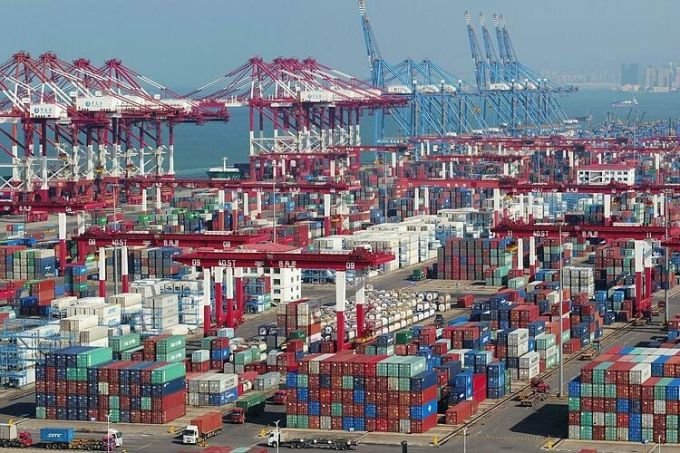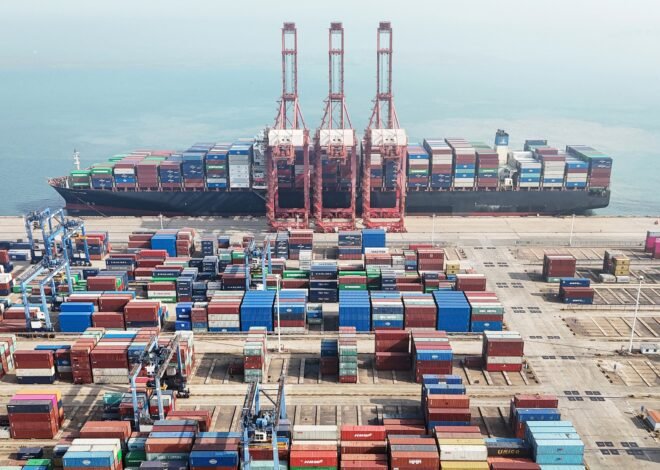
Goods are stranded globally because of the epidemic
About 80% of global trade in goods occurs by sea.
`The closure of the world’s manufacturing center greatly affects container shipping activities. Because this is the main means of transport used in Asia and globally,` Peter Sand – analyst at the shipping organization
The longer epidemic prevention measures last, the more difficult it is for goods to move around the world.
Containers at a seaport in Shandong (China).
Many ships are currently unable to dock in China, due to slow loading and unloading of goods, said Guy Platten – secretary general of the International Chamber of Shipping (ICS) International.
Others are even adrift in `floating quarantine zones`, as countries such as Australia or Singapore refuse to accept ships that have been to China into their ports, until the entire crew is tested negative.
Shipping giants, such as Maersk, MSC Mediterranean Shipping, Hapag-Lloyd and CMA-CGM, have reduced the number of ships on routes connecting China and Hong Kong with India, Canada, the US and West Africa.
BIMCO member companies said China’s demand for seaborne goods is very limited, or even non-existent, for commodities such as coal, crude oil and iron ore.
Logistics firm Freightos had to warn customers that goods out of China would be slower.
It’s not just sea transport that is affected.
The situation could `have a major impact on supply chains and production` across a range of industries in China, such as autos, pharmaceuticals, medical supplies and high-tech manufacturing, DHL said.
UPS and FedEx Express said they will continue to fly to and from China.


